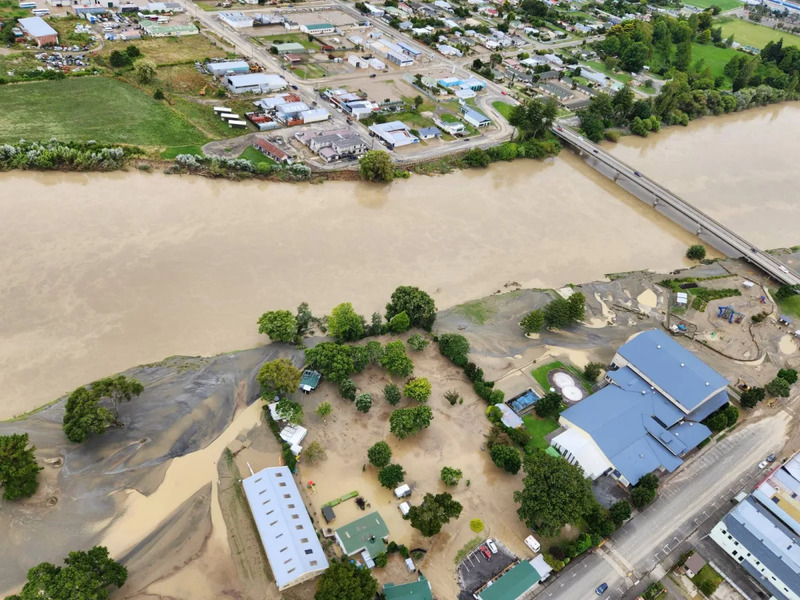
Market Update
After a strong rally to start the year, global share markets gave back some of their gains in February. Surprisingly strong economic data led investors to expect higher interest rates which weighed on equity valuations. The strength of theUS labour market was particularly surprising, as the unemployment rate fell to a 53-year low of 3.4%. The strong economic data and
higher interest rate outlook saw the USD appreciate 4% against the NZD. This more than offset the decline in global share markets for New Zealand based investors. As was widely expected, the Reserve Bank of New Zealand raised the OCR by 0.5% to 4.75%, marking the 10th consecutive increase in New Zealand’s benchmark interest rate. Current market expectations are for the OCR to peak at around 5.5% by mid-2023. February was a busy month for New Zealand listed companies, with the majority of our largest companies reporting their half- year financial results. Overall results were mixed, with some companies’ results disappointing and others beating expectations. Auckland International Airport’s results were particularly well received, with revenue up 130% since last year, fuelled by a robust recovery in international
The importance of geographical diversification
Cyclone Gabrielle and the extensive flooding in the North Island have taken a devastating toll on those affected, leaving more than 10,000 people displaced and around 4,300 homes unsafe to enter. The full extent of the damage is still being assessed, but early estimates suggest the rebuild cost could rival that of the Christchurch earthquakes in 2011.
Impact on the New Zealand Economy
The economic impact of the cyclone is expected to be significant. Disruptions to businesses and households in affected areas will likely suppress economic activity in the short term. However, the immediate need to replace damaged property, such as vehicles, clothes, and household appliances, will also increase demand for certain goods and services, likely resulting in more economic activity and additional inflationary pressure in our already capacity-constrained economy. The Reserve Bank of New Zealand’s initial estimate is that the cyclone will add an additional 0.3% to New Zealand’s inflation rate in both the March and June quarters.

Over a longer time frame, significant investment will be necessary to rebuild severely damaged homes and infrastructure. This investment, funded partly by insurance payouts and government borrowing, is expected to increase economic activity in affected regions above normal levels. The Reserve Bank of New Zealand estimates that the rebuild will add around 1% to New Zealand’s economic growth over the next few years.
Importance of diversification
The devastation caused by Cyclone Gabrielle underscores the importance of diversifying your investments. A well-diversified portfolio is diversified at two levels: between different types of investments, such as shares, bonds, and property, and within each investment type. For example, the Booster Balanced Fund invests in seven different types of assets in over 80 countries and 68 industries and has shareholdings in over 1,800 companies. This level of diversification provides protection against region- specific natural disasters like Cyclone Gabrielle.
Booster Private Land and Property Fund
Even Booster portfolios’ New Zealand land investments (via the Booster Private Land and Property Fund) are well diversified. The Booster Private Land and Property Fund invests in productive horticultural and agricultural land across New Zealand, including avocado orchards in the Bay of Plenty, vineyards in Hawkes Bay, hop gardens in the Nelson region, and dairy farms in Southland. While some of the Private Land and Property Fund’s investments are in the regions affected by the cyclone, at this stage, there has been no material impact on the Fund.
In conclusion, Cyclone Gabrielle has had a devastating impact on many New Zealanders, and the total rebuild cost and economic ramifications are still uncertain. However, slightly higher inflation in the short term and a small boost to economic growth over the next few years are likely outcomes. This event serves as a sobering reminder that investing in well-diversified portfolios is essential for mitigating the effects of natural disasters on your investments.
Booster Investment Management Limited is the manager and issuer of the Booster Innovation Scheme (Scheme). The Scheme’s Product Disclosure Statement is available at www.booster.co.nz or by contacting your financial adviser.

